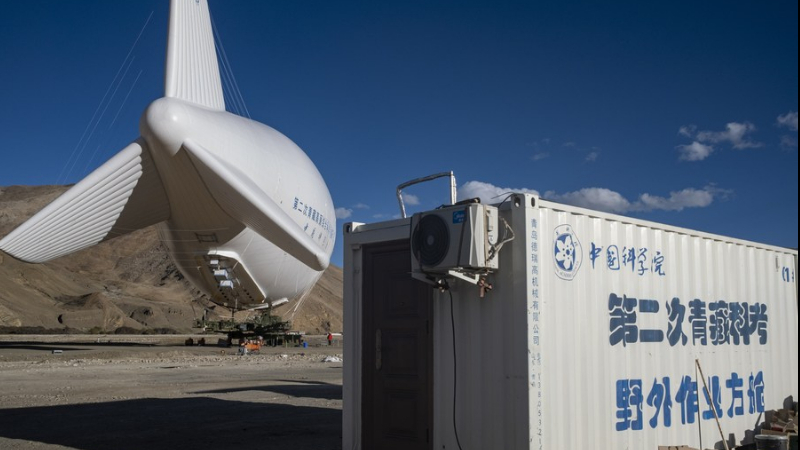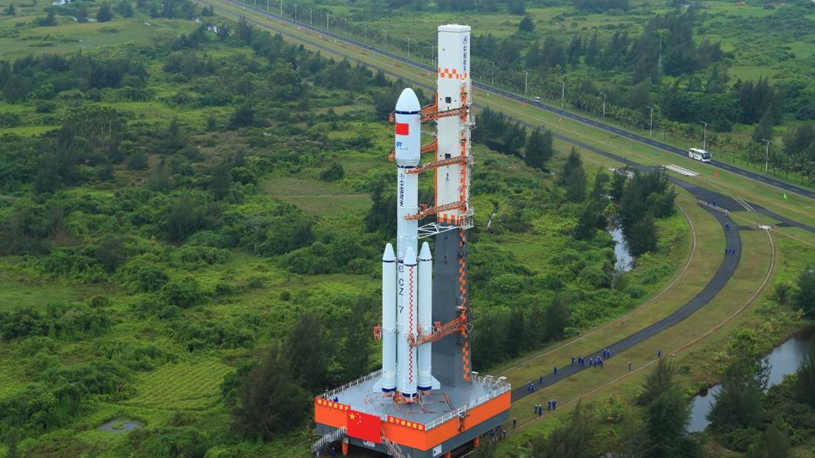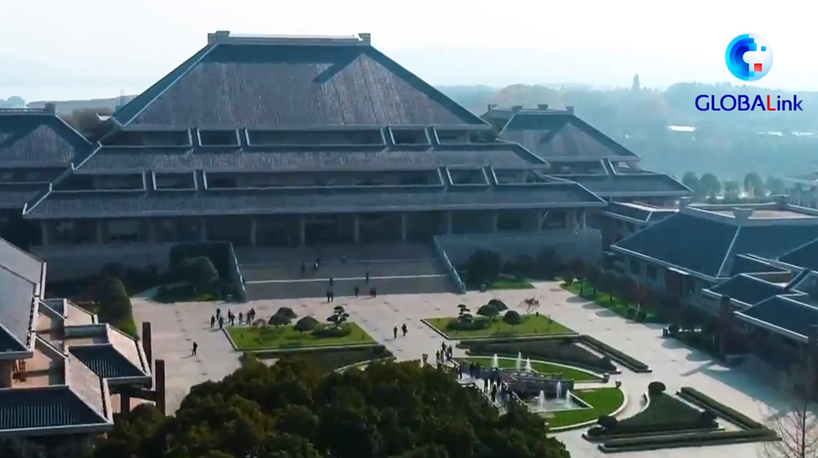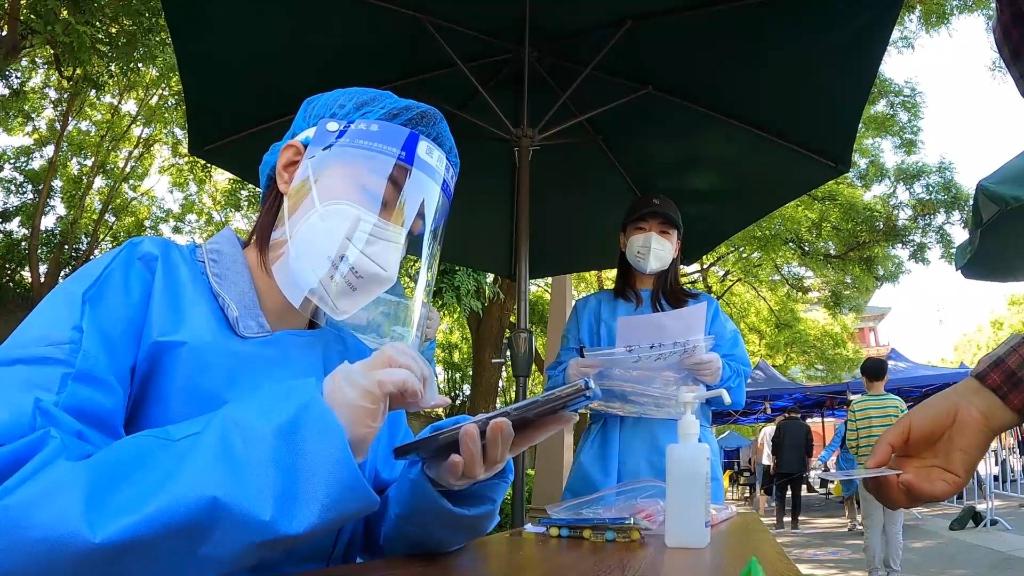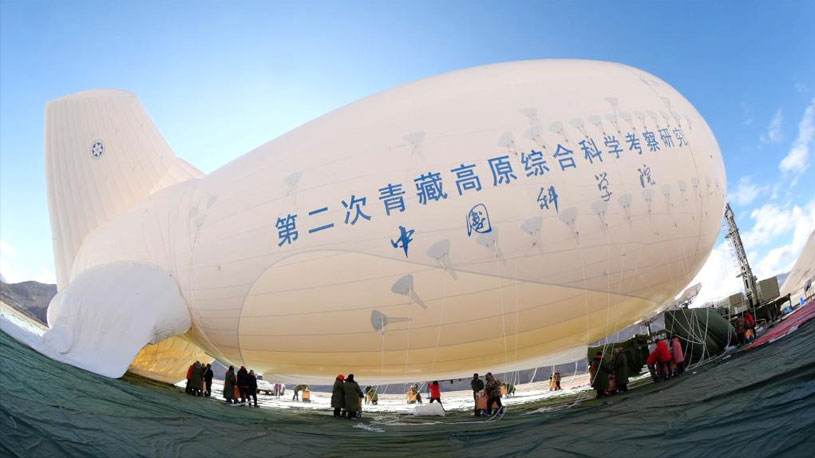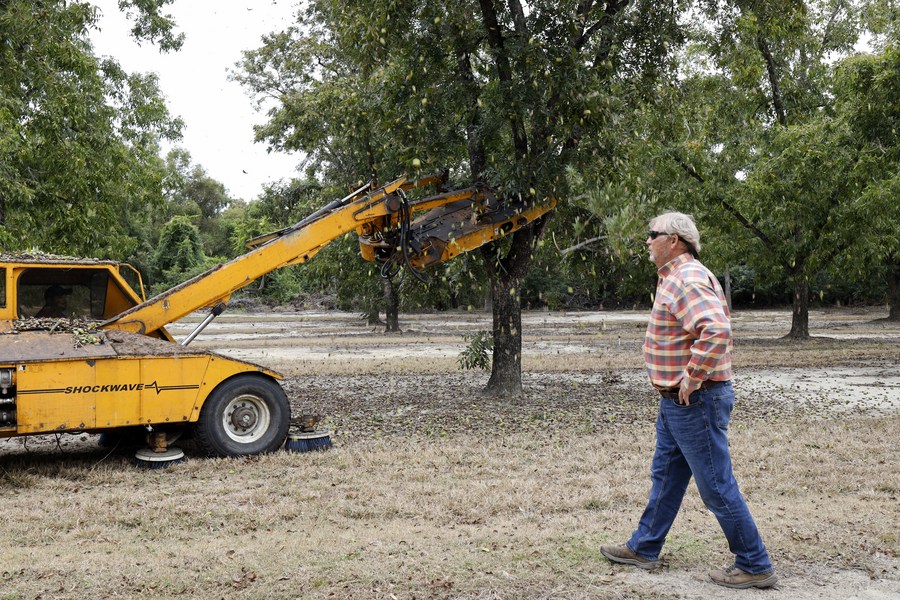
File photo taken on Oct. 24, 2019 shows Randy Hudson, chief executive officer of Hudson Pecan Company and former president of U.S. Pecan Growers Council, walking in the field as pecans are shaken off the tree in one of his orchards near Ocilla, Georgia, the United States. (Xinhua/Li Muzi)
"We're working really diligently and trying to get our people, our government, the people that we can talk to, to understand that it's very important that where food commodities are concerned, that these tariffs be removed," says Randy Hudson.
by Xinhua writer Liu Yanan
NEW YORK, May 18 (Xinhua) -- There is an excellent opportunity for the United States and other countries to reduce tariffs as food shortage and inflation pose challenges worldwide, a U.S. pecan grower told Xinhua in a recent interview.
Governments should understand that tariffs are nothing more than a tax on food and the increased cost to people who need cheap food, said Randy Hudson, chief executive officer of Hudson Pecan Company, in an interview with Xinhua on Monday.
"It's very important that there be a policy that supports our ability to transfer and get food to the people that need it around the world," said Hudson, who runs his pecan orchard in Ocilla of Georgia State and exports pecans abroad.
U.S. President Joe Biden recently said the administration is discussing whether to drop the additional tariffs on Chinese imports imposed during the Trump administration. At the same time, a few other high-ranking U.S. officials hinted at the possibility of reducing tariffs on imported goods to tame raging inflation.
U.S. consumer inflation in April surged by 8.3 percent from a year ago, marking the second straight month of inflation over 8 percent, according to the U.S. Labor Department.
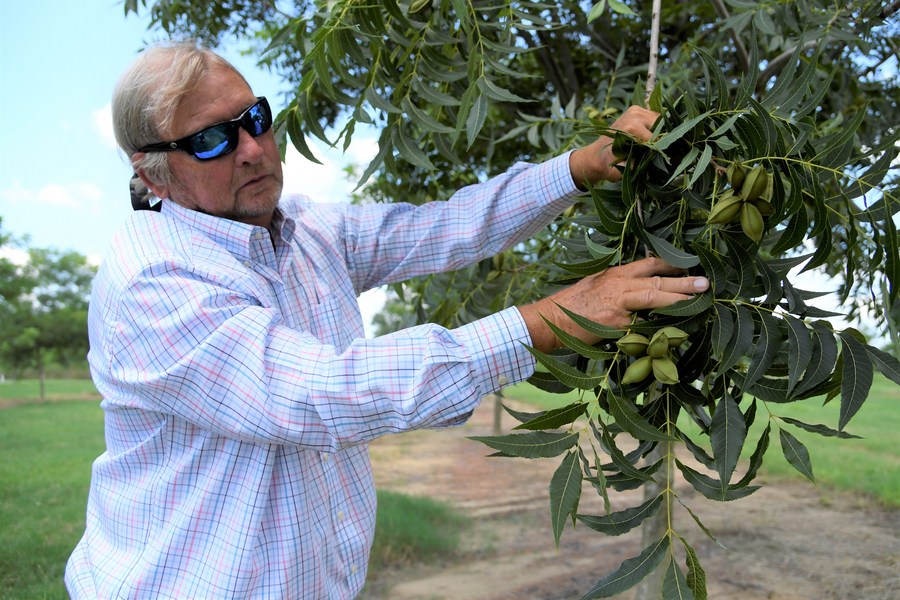
File photo taken on July 10, 2018 shows Randy Hudson sorting a bunch of pecan on his farm in the State of Georgia, the United States. (Xinhua/Yang Chenglin)
The impacts of inflation and a possible recession in the United States are creating a situation where food prices could rise higher, leaving many people without basic necessities, warned Hudson, citing the lack of infant formula in the United States as evidence.
Noting reduction of tariffs is a national and political issue, Hudson said, "We're working really diligently and trying to get our people, our government, the people that we can talk to, to understand that it's very important that where food commodities are concerned, that these tariffs be removed."
Hudson's pecan exports to China dropped after China imposed tariffs on pecans in response to the U.S. levying tariffs on products imported from China around four years ago.
However, Hudson told Xinhua he has maintained his relationships with his Chinese customers, and that "we look forward to normalizing relations of trade and friendship with our Chinese customers."
"We want to get back into China. We miss traveling. So we want to get back over just as soon as possible," said Hudson who brought pecans to the Chinese market in 1999 and is among the earliest pecan growers to enter China. ■


